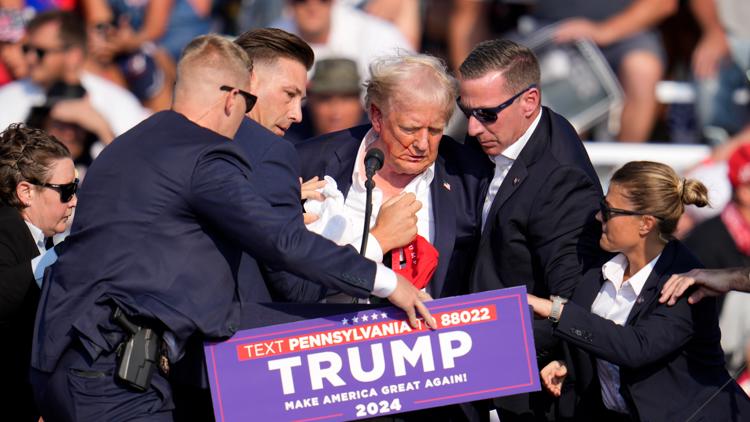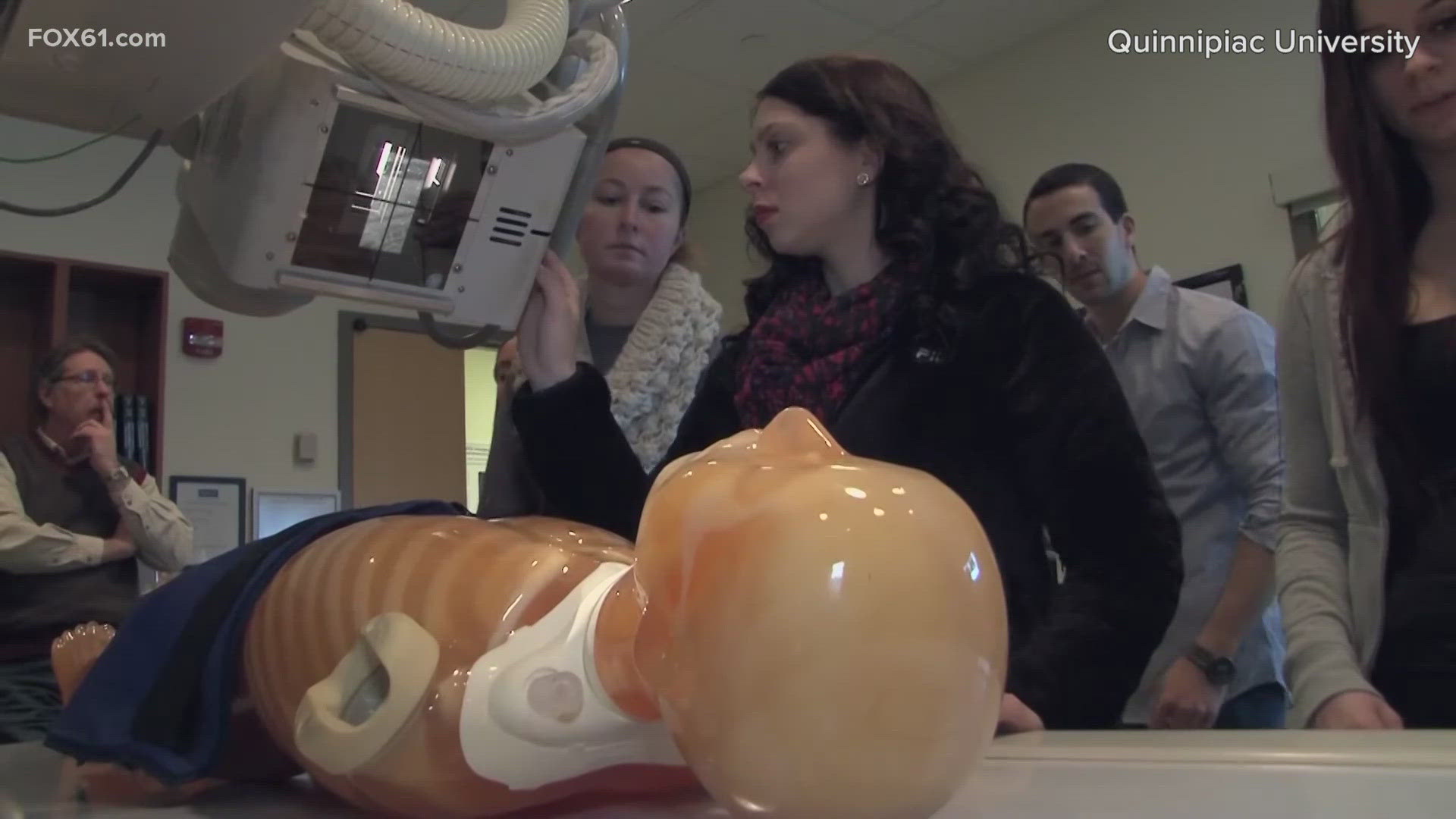WASHINGTON — An independent panel investigating the attempted assassination of Donald Trump at a Pennsylvania campaign rally faulted the Secret Service for poor communications that day and failing to secure the building where the gunman took his shots. The review also found more systemic issues at the agency such as a failure to understand the unique risks facing Trump and a culture of doing “more with less.”
The 52-page report issued Thursday took the Secret Service to task for specific problems leading up to the July 13 rally in Butler as a well as deeper one within the agency's culture. It recommended bringing in new, outside leadership and refocusing on its protective mission.
“The Secret Service as an agency requires fundamental reform to carry out its mission,” the authors wrote Secretary Alejandro Mayorkas of the Homeland Security Department, the Secret Services' parent agency, in a letter accompanying their report. “Without that reform, the Independent Review Panel believes another Butler can and will happen again.”
One rallygoer was killed and two others wounded when Thomas Michael Crooks climbed onto the roof of a nearby building and opened fire as Trump spoke. The former president was wounded in the ear before being rushed off the stage by Secret Service agents. That shooting, along with another incident in Florida when Trump was golfing — a gunman there never got a line of site on the president or fired a shot — has led to a crisis in confidence in the agency.
The report by a panel of four former law enforcement officials from national and state government follows investigations by members of Congress, the agency's own investigators and by Homeland Security's oversight body.
A look at the report's key findings and recommendations:
Poor communications, no plan for key buildings
The panel echoed previous reports that have zeroed in on the failure to secure the building near the rally that had a clear line of site to where Trump was speaking and the multiple communications problems that hindered the ability of the Secret Service and local and state law enforcement to talk to each other.
“The failure to secure a complex of buildings, portions of which were within approximately 130 yards of the protectee and containing numerous positions carrying high-angle line of sight risk, represents a critical security failure,” the report said.
The panel faulted the planning between Secret Service and the local law enforcement, and said the Secret Service failed to ask about what was being done to secure the building: “Relying on a general understanding that ‘the locals have that area covered’ is simply not good enough and, in fact, at Butler this attitude contributed to the security failure.”
The panel also cited the fact that there were two separated command posts at the Butler rally: one with various local law enforcement and another with the Secret Service: “This created, at the highest level, a structural divide in the flow of communications.”
There were other communications problems.
The Secret Service had to switch radio channels because radio traffic of agents protecting first lady Jill Biden at an event in Pittsburgh was popping up on the channels of agents covering the Butler rally.
The panel also noted that all the law enforcement personnel on the ground were using a “chaotic mixture” of radio, cell phone, text, and e-mail throughout the day to communicate.
Also the panel said it was unclear who had ultimate command that day.
Cultural issues within the agency
The report delved into the agency's culture and painted a picture of an agency struggling to think critically about how it carries out its mission, especially when it comes to protecting Trump.
The panel said agency personnel operated under the assumption that they effectively had to “do more with less." The report said the additional security measures taken to protect Trump after the Butler shooting should have been taken before.
"To be clear, the Panel did not identify any nefarious or malicious intent behind this phenomenon, but rather an overreliance on assigning personnel based on categories (former, candidate, nominee) instead of an individualized assessment of risk,” the panel wrote.
The panel also noted the “back-and-forth" between the Trump security detail and Secret Service headquarters regarding how many people were needed to protect him.
The panel also faulted some of the senior-level staff who were involved in the rally for what they called a “lack of ownership.” In one example, the panel said a senior agent on site who was tasked with coordinating communications didn't walk around the rally site ahead of timen and did not brief the state police counterpart before the rally about how communications would be managed.
It cited the relative inexperience of two specific agents who played a role in security for the July 13 rally. One was the site agent from Trump's detail whose job it was to coordinate with the Pittsburgh field office on security planning for the rally. The panel said the agent graduated from the Secret Service academy in 2020, and had only been on the Trump detail since 2023. Before the Butler rally the agent had only done “minimal previous site advance work or site security planning.”
Another agent assigned to operate a drone detection system had only used the technology at two prior events.
What did the panel recommend?
Having a unified command post at all large events where Secret Service and other law enforcement representatives are all physically in the same place; overhead surveillance for all outdoor events; security plans must include a way to mitigate line of site concerns out to 1,000 yards and who's in charge at the event; and more training on how to get protectees out of dangerous scenarios.
The panel said the agency also needs new, outside leadership and a renewed focus on its core protective mission while expressing skepticism that the agency should continue with the investigations it currently conducts. While the Secret Service is well known for what it does to protect presidents and other dignitaries, it also investigates financial crimes.
“In the Panel’s opinion, it is simply unacceptable for the Service to have anything less than a paramount focus on its protective mission, particularly while that protective mission function is presently suboptimal," the report said.
The panel members were Mark Filip, deputy attorney general under President George W. Bush; David Mitchell, who served in numerous state and local law enforcement roles in Maryland and Delaware; Janet Napolitano, homeland security secretary under President Barack Obama; and Frances Fragos Townsend, Bush's assistant for homeland security and counterterrorism.



